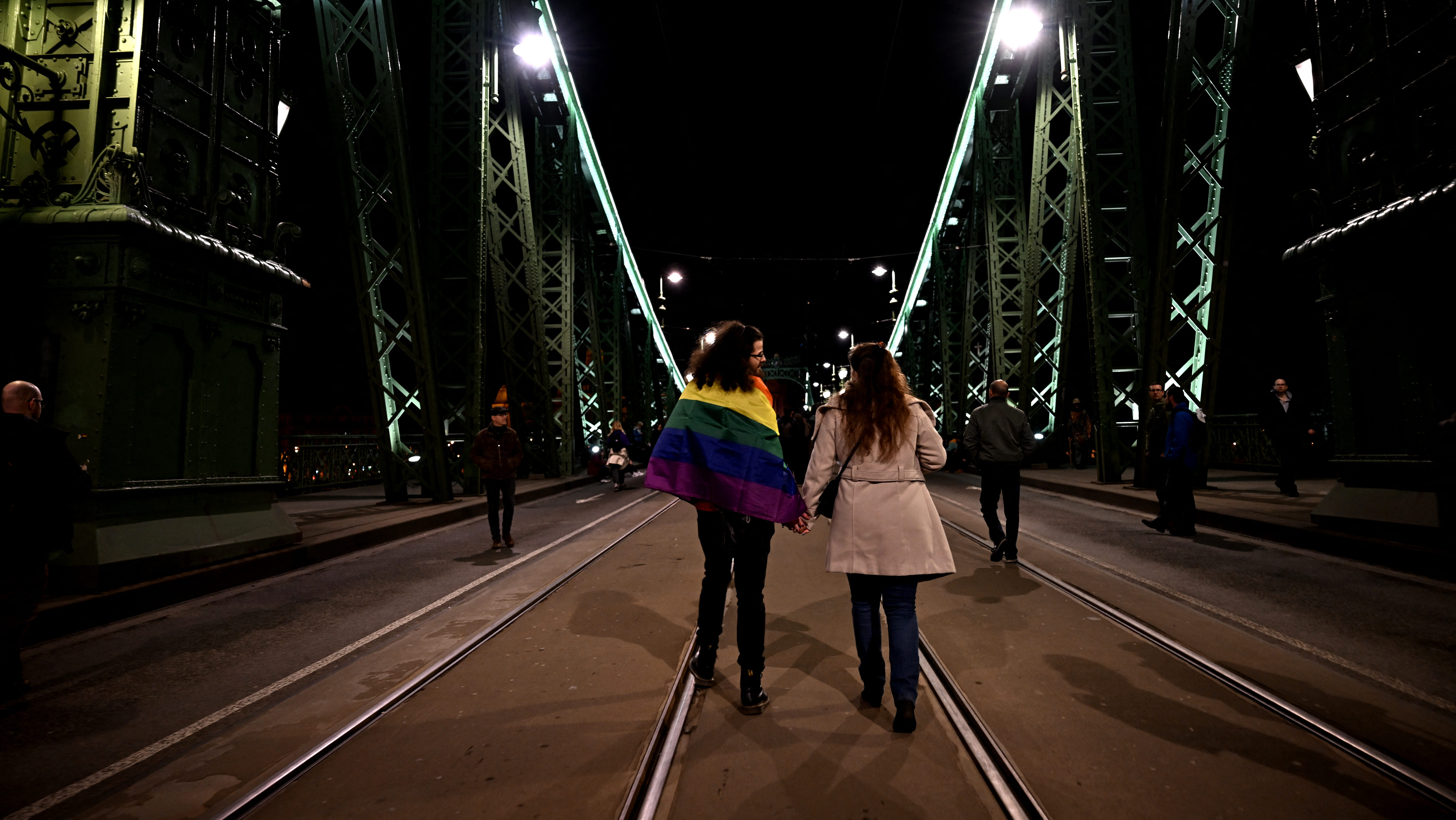Over the past few days, protests have taken place in the Hungarian capital, Budapest, against what progressives describe as an ‘anti-Pride’ law adopted by the parliament. Demonstrators blocked roads and bridges, causing significant disruption in the usually calm and safe city. As usual, foreign actors did not distance themselves from the protest: among the speakers was German Green MEP Daniel Freund, who has made a career of publicly and persistently criticizing the Hungarian government and Prime Minister Viktor Orbán. In addition to Freund, on Thursday 22 embassies of European Union member states—alongside the United Kingdom and Australia—issued a joint statement expressing their concerns.
‘We, the undersigned Embassies, are deeply concerned about the legislation… that results in restrictions on the right of peaceful assembly and the freedom of expression,’ the statement reads. Among the signatories are France, Germany, Sweden, and Austria. Notably absent, however, were Italy, the United States, and Portugal.
Julia Gross on X (formerly Twitter): “Joint statement on the Hungarian legislation restricting the right of peaceful assembly and the freedom of expression pic.twitter.com/EaQ32MUfIi / X”
Joint statement on the Hungarian legislation restricting the right of peaceful assembly and the freedom of expression pic.twitter.com/EaQ32MUfIi
Children First Agenda
The Hungarian parliament adopted an amendment to the law on the right of assembly on 18 March, which, citing child protection concerns, introduces stricter conditions for organizing mass events such as Budapest Pride. According to the amendment, if an organizer attempts to obtain permission for a prohibited assembly through deception, or if an individual knowingly participates in such an event despite having been informed in advance by the authorities of its prohibited nature, this constitutes an offence. Offenders may be fined, with the amount collected as public debt and the proceeds earmarked for child protection purposes.
Hungary’s child protection law is among the strictest in the region with regard to the indoctrination of children by gender ideology and the promotion of LGBTQI+ propaganda. Adopted in June 2021, the Child Protection Act includes a ban on promoting homosexuality and gender reassignment to individuals under 18, as well as regulations on sex education in schools. The law was further tightened last year with the introduction of measures such as the denial of parole for individuals sentenced to imprisonment for crimes against the sexual freedom and morality of persons under the age of 18.
The legislation has been targeted by Brussels and by NGOs promoting a woke agenda, while it has been praised by conservatives worldwide, including most Republicans in the United States. In fact, the Governor of Florida, Ron DeSantis, implemented similar legislation in the Sunshine State, earning him the nickname ‘Florida’s Orbán’. The strict child protection policy is one of the reasons Brussels has withheld significant funding from Hungary.
Brussels Preparing for 2026
During his speech, Freund claimed that freedom and democracy are under constant threat in Hungary, and that this is due to one man: Viktor Orbán—who was once a freedom fighter but is now, according to Freund, an authoritarian leader. As a result, he said, an alliance has been formed against him, comprising both foreign and Hungarian actors. He then boasted that they had succeeded in freezing EU funds due to Hungary.
Daniel Freund on X (formerly Twitter): "My speech in Budapest here also in full length with Hungarian subtitles (machine generated). pic.twitter.com/o4qSAEUy0k / X"
My speech in Budapest here also in full length with Hungarian subtitles (machine generated). pic.twitter.com/o4qSAEUy0k
Two points come to mind when listening to the German MEP. First, he was entirely free to express his opinion in Hungary, at a mass protest, without being arrested or harassed by the authorities—just like all other participants in the demonstration. That fact stands in fundamental contradiction to nearly everything he lamented so vehemently. Prime Minister Viktor Orbán also highlighted this contradiction in an interview on Friday.
Secondly, by appearing at the protest, speaking out against the current—and four-time (in a row) democratically elected—Hungarian government, and referencing an alliance involving foreign and domestic actors opposed to it, Freund essentially confirmed what the patriotic side has been saying for over a decade: that Brussels is consistently interfering in Hungary’s internal affairs with the clear goal of toppling the government. This only reaffirms the need to respond firmly to such interference and to ensure full transparency regarding the NGOs and organizers behind the protests, as well as their sources of funding.
As for the statement issued by the embassies, there is nothing new under the sun. Similar actions have taken place in previous years—most notably in 2017, when nearly the same group of countries expressed their ‘solidarity’ with Budapest Pride in a joint press release. In 2024 former US Ambassador to Hungary David Pressman led an initiative involving 35 embassies on the same issue; there were 38 signatories in 2023, and 30 in 2022. The year 2024 also marked the first time Poland joined such a statement, following Donald Tusk’s return to power in October 2023.
Related articles:








